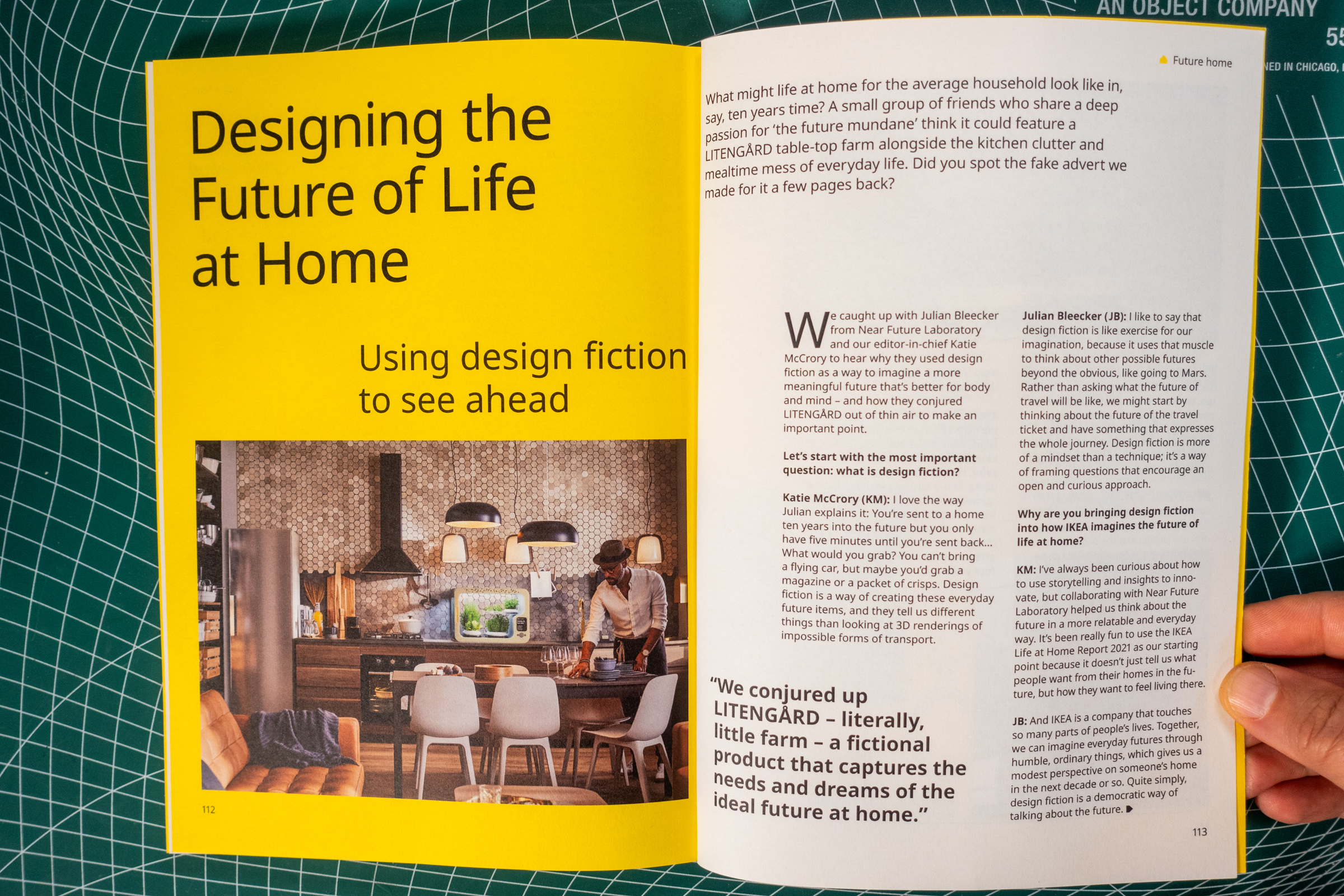
Project Summary
What does Life at Home look like when a world that's been on lockdown imagines what it wants? We translated the data from the world's most extensive in-home ethnographic research and imagined that world if it were pages from an IKEA catalog.
Project Semantic Tags
ARCHETYPECONSUMER RESEARCHDESIGN FICTIONDESIGN RESEARCHIKEAMAGAZINE
The Outcomes
The value of this project was its augmentation of rich, although highly analytic qualitative and quantitative research data. Near Future Laboratory was able to provide this augmentation through Design Fiction, representing the data in the form of the kinds of tangible artifacts — products, services, customer experiences — that are implied by the gathered data.\n These Design Fiction artifacts are speculative designed objects that represent a possible end-point to the felt needs expressed in the data, the conversations and subjective assessments, and thematics of the research interviews. Our perspective is that organizations typically represent the 'implications' of research, anthropological studies, surveys and other analysis with prose-based explications at best and tables of data, graphs, and quantitative assessments in the typical case.\n While these kinds of summarizations are expected and considered hygiene for research studies, they can over-index on the analytic character of the research. By showing leadership and other stakeholders a representation and translation of tables of data or summaries of surveys in a visceral and tangible fashion, we were able to augment the analysis and thereby bring a felt sense of the implications.


The Brief
IKEA’s annual “Life at Home” report is one of the world’s largest and most comprehensive research projects. It explores various aspects of domestic living around the world, capturing a wide range of insights about Home Design, Living Habits, Technology at Home, Family, Neighbor and Social Dynamics, Health and Well-being and comparative analysis of Global and Regional contrasts.
IKEA asked Near Future Laboratory to help their executive team and senior leadership represent the implications of their 2021 annual Life at Home report. There was an interest in making the report more tangible and also anticipatory — showing both IKEA senior leadership as well as readers of the report what the report’s findings might yield in some possible near future.
The result is the IKEA Life at Home Magazine 2021 - A Balanced Place
The Process
Near Future Laboratory was taken on a deep-dive into the report’s preliminary findings prior to the report’s publication. Over a series of workshops and calls, the more significant top-level findings were considered for representation in some fashion. Several findings resonated, largely a result of the state of global consciousness due to an extended pandemic lockdown: self-reliance/resilience and new social connections amongst neighbors and ‘quarantine pods’.

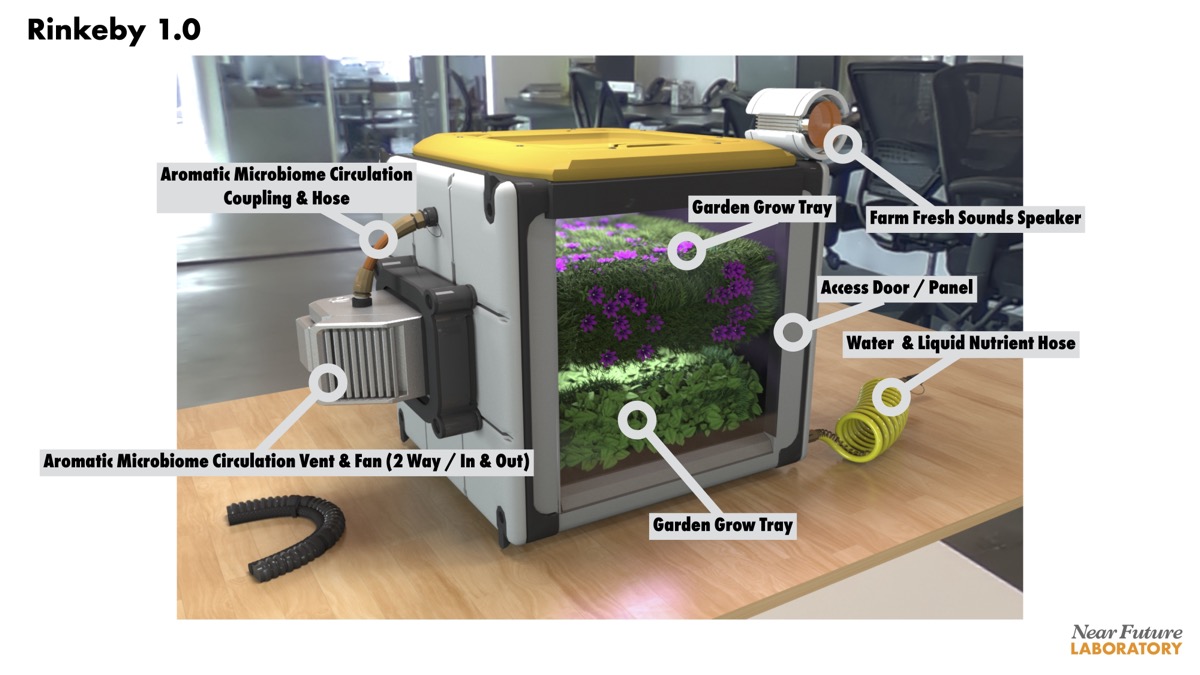
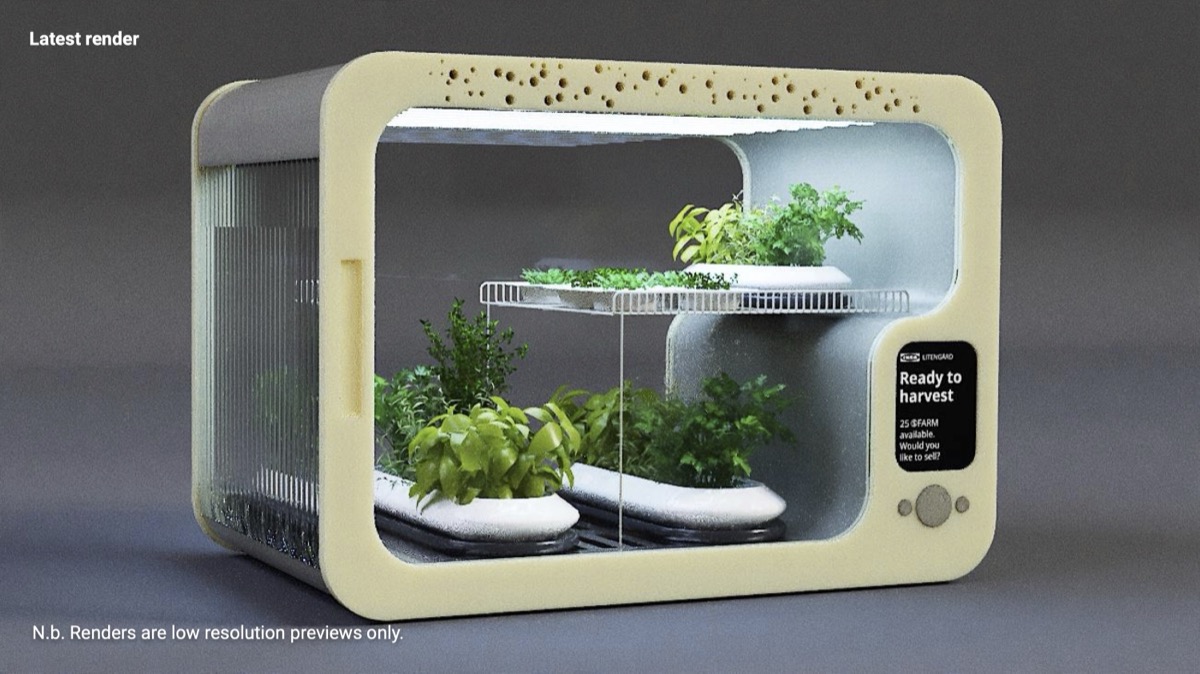

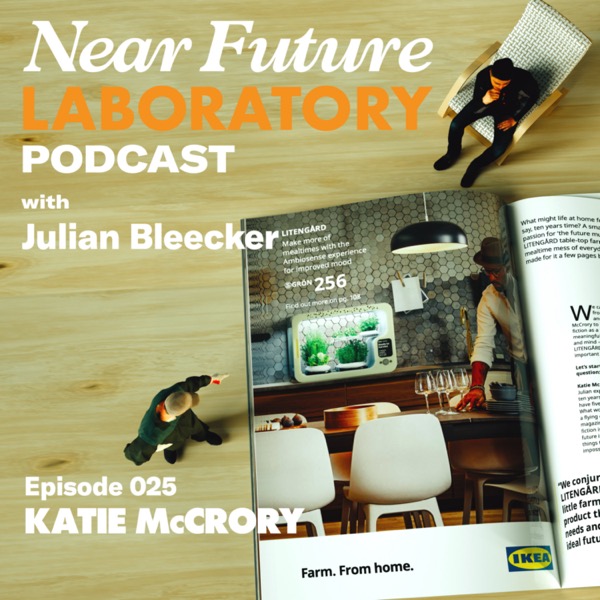
The Artifact
We settled on an artifact that was simple, didn’t over-index on ‘futuristic’ nor ‘techno-fetish’ and spoke to IKEA values and sensibilities: a home gardening appliance that implies a world in which home gardening, even in urban contexts, is a normal, ordinary, everyday activity.
We called it Litengård, and it’s a bargain at only 256 GRÖN.
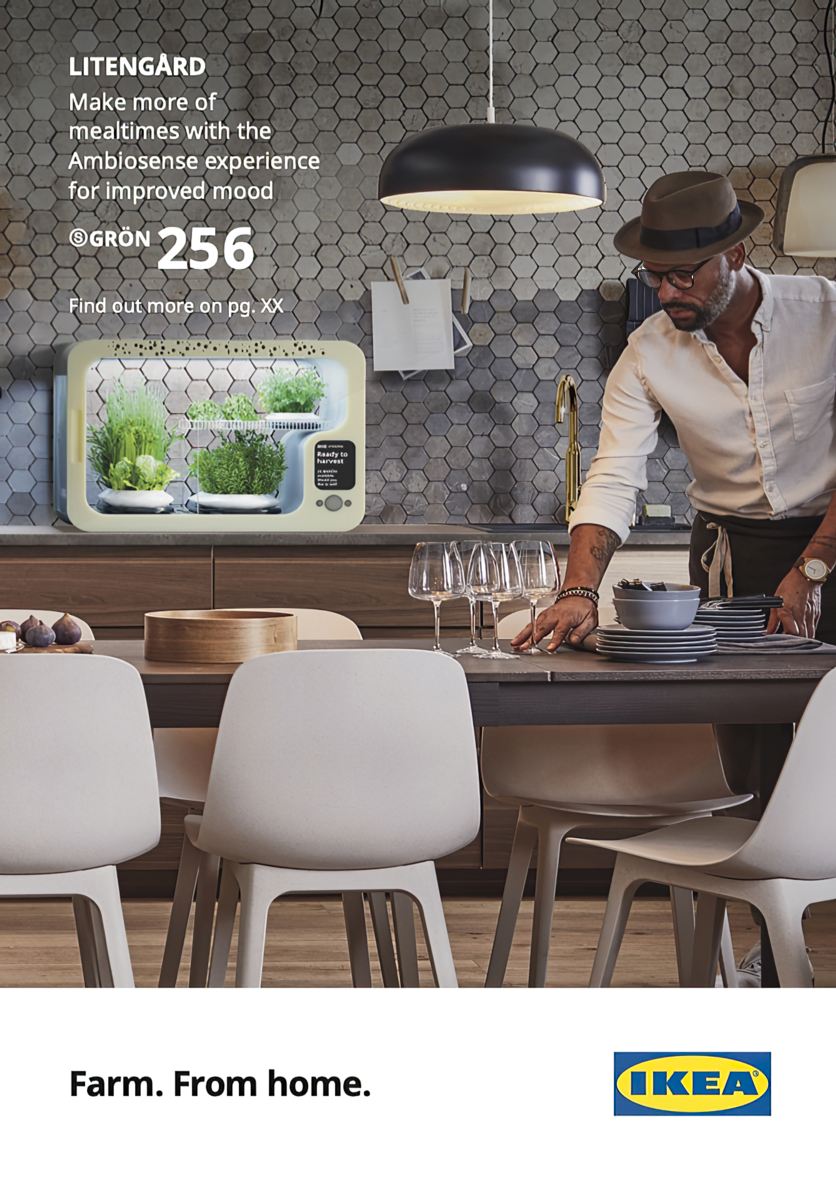
The Discussions that led to Litengård
The resultant artifact appears simply, because Design Fiction isn’t about doing typically futuristic design. We carefully decanted the sense of the research itself, including observations and reflections from the persons who participated in providing their experiences for the report.
One of the observations revealed a prevelance of homes that were, of necessity, doing much more home cooking to the point where they began gardening — window sills because fields of vegetables. Apartment blocks created ‘pod gardents’ and larger community gardens.
We also observed new, unexpected and quite unique forms of analog social networking. Neighbors would leave groceries for other neighbors at their door and simply knock before leaving. The terrace of apartments became places where people could gather to converse with their neighbors above, below, and besides while maintaining social distances. Informal radio stations began to appear. Notes would be passed on bits of string. These kinds of ad-hoc and organically formed non-technology-based forms of maintaining social cohesion were remarkable to hear about. (And implied in the Litengård through a social networking capability)
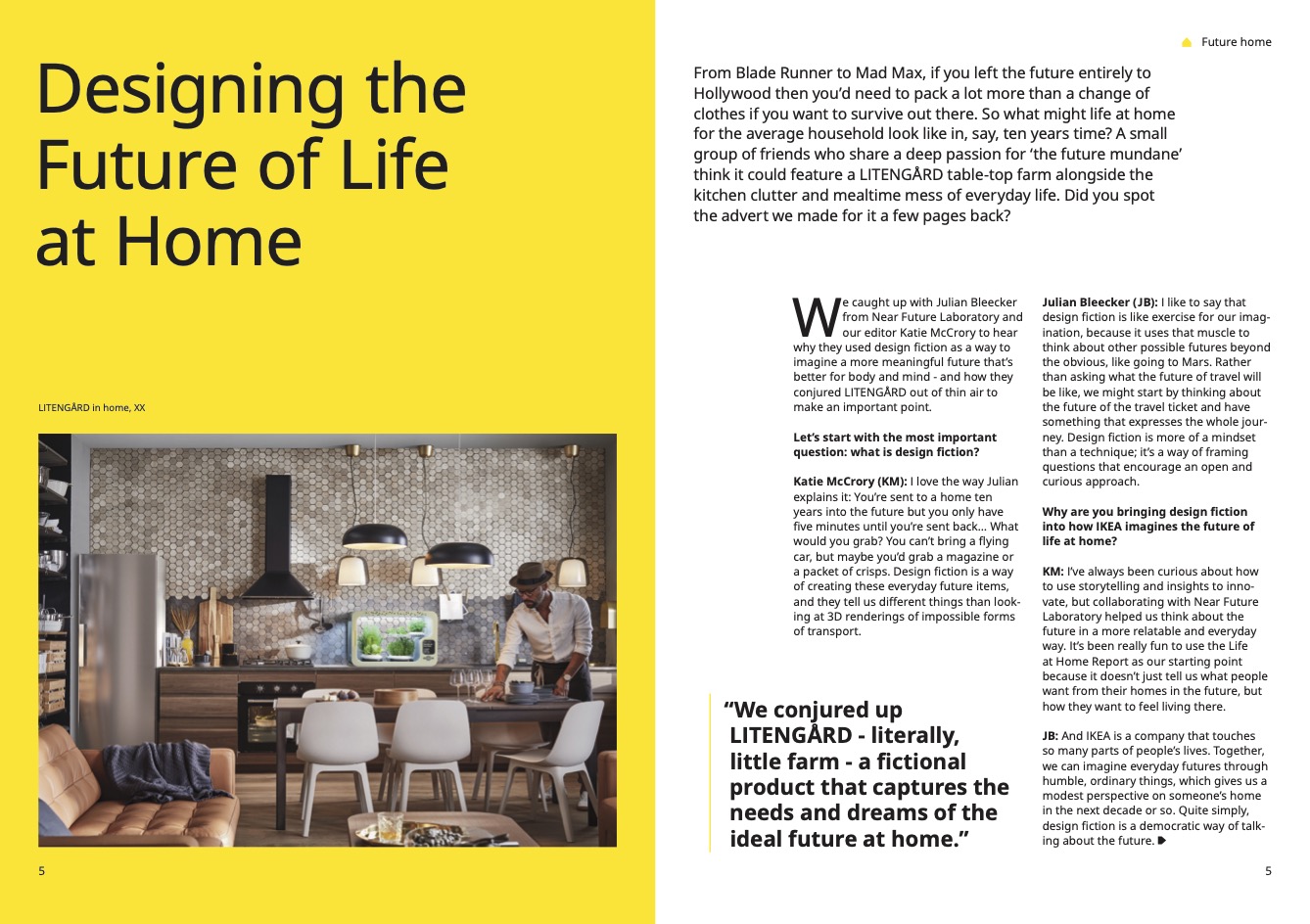

What’s a GRÖN?
Remember the exuberance around Cryptocurrency and Blockchain during the pandemic? We wanted to integrate this sensibility by imagining how the hype would settle in some future of home. Without making predictions or proposing a solution, we were able to use a simple Design Fiction principle to create implications of change: GRÖN is the blockchain-based value that is earned by using Litengård to grow your own vegetables, the implication being that there is a larger community value in this activity. $GRÖN, we might imagine, can be exchanged in other value-exchange contexts and, thus, we imagine into the possibility that the exuberance has evolved, and Blockchain and Crypto are now normal, ordinary, and everyday.
After Action assessment
The IKEA Life at Home Magazine was very well-received by senior leadership. They found it to be an invaluable asset in envisioning a future of ‘Life at Home’. They found the synthesis of the extensive ethnographic and market research into a cohesive, forward-looking concept not only enriched their understanding but has sparked idea development across product teams.
By employing Design Fiction, IKEA was able to vividly conceptualize and anticipate evolving consumer needs and trends in home living. The project goes well-beyond mere data analysis; Design Fiction is an imaginative approach and methodology that helps empower organizations like IKEA to continue leading in creating meaningful, innovative home solutions. The insights they gained have been instrumental in guiding their strategic planning and product development, ensuring that meaningful innovation and everyday life remain intimately connected.

Use the Contact Form below to discuss how you can engage Near Future Laboratory to help you make sense of your organization's possible futures.